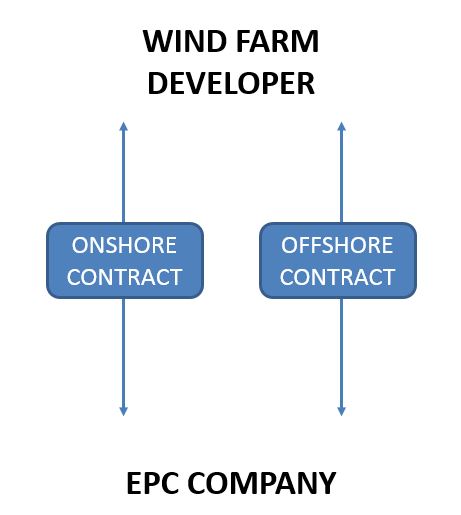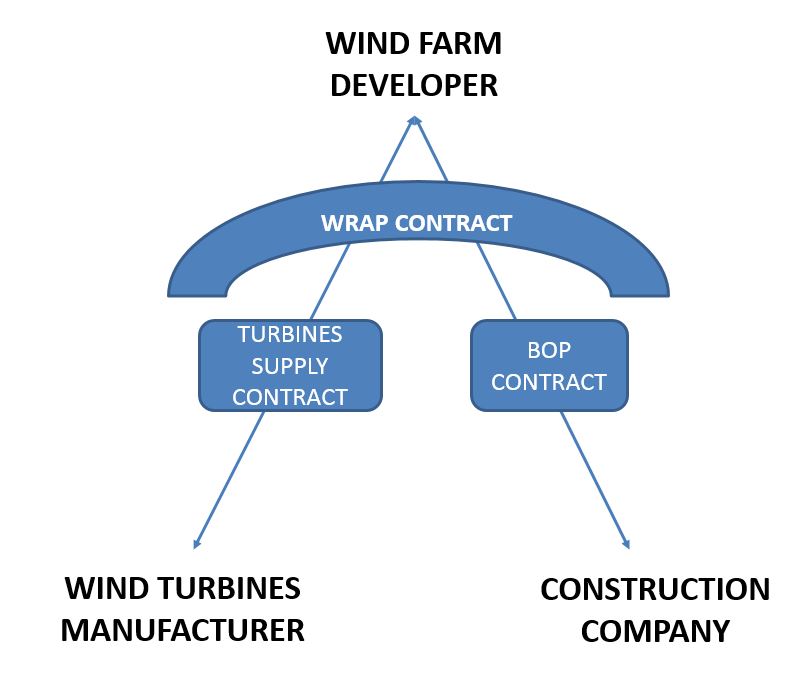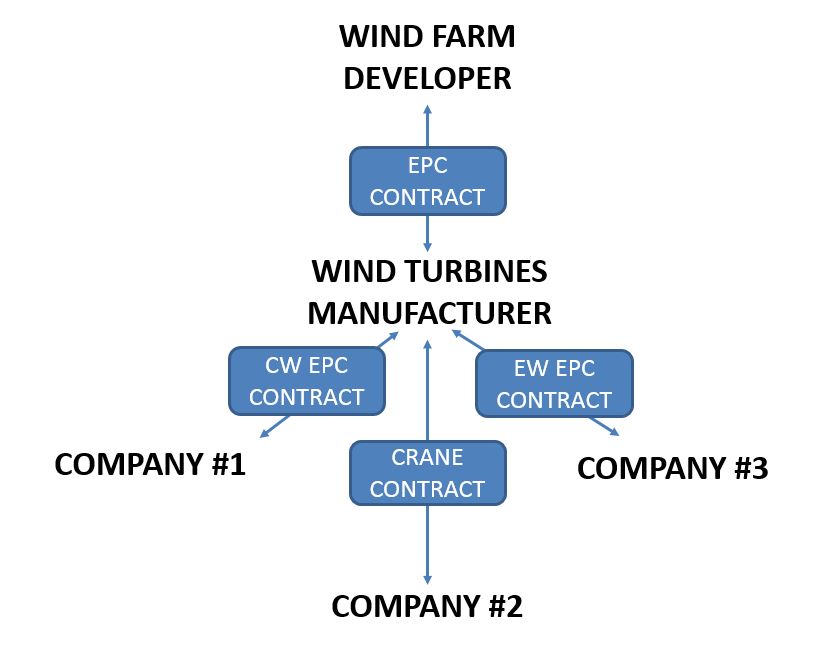As you probably will be aware of if you are reading this blog, an EPC is a typology of contract where a company agree to develop the engineering, procurement and construction of a facility (in this blog, a wind farm) for a fixed, “lump sum” amount.
The key advantage of this type of contract is the existence of a single point of responsibility.
This improves in some situation the bankability of the project, as it puts the investors in a simpler position – if somethings go wrong, they have only one counterpart to deal with and there is no room for common discussions like “it has been built correctly but the engineering is wrong” or “I was on schedule, but this other subcontractor is late”.
However, sometimes the EPC contract is split. This word can be used with different meanings.
If it is referred to the contract between the wind farm developer and the main EPC contractor, it usually means that 2 different contracts are created, one for the onshore construction and another for the offshore supply. This is normally done for taxes purposes.
The second meaning refers to the fact that 2 different contracts are created – one for the supply of the wind turbines and another for the balance of plant. In this case, there are 3 parties involved: the developer of the wind farm, the wind turbines supplier and the construction company.
With this setup, a third agreement is needed to deliver a single point of responsibility despite the split. This third agreement will “wrap-around” the other 2 contracts defining coordination, interfaces and guarantees. Obviously, the lender will try to keep the other 2 parties jointly liable as much as possible.
The third meaning arise from the main contractor perspective. In this case, splitting a contract means dividing the task between 2 or more subcontractors (usually one for the civil works and another for the electrical works).
For instance, the main EPC contractor (for example, the wind turbines manufacturer) could be interested in closing 2 other EPCs – one for the civil works and another for the electrical works. Usually, splitting contracts will reduce cost and increase the risk and complexity of the project.



Leave a Reply